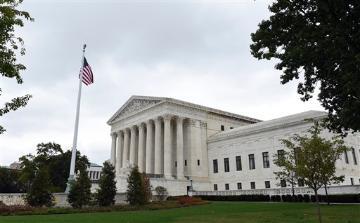
David DeCosse is the director of Campus Ethics at the Markkula Center for Applied Ethics. Views are his own.
The Kavanaugh hearings raised many ethical issues but few are as important as the legitimacy of the United States Supreme Court.
In a stable political society, the issue of legitimacy rarely arises. Citizens obey laws or consent to judicial decisions without thinking too much about it. But in a sharply divided political society – as the United States is now – the question of legitimacy starts to be asked as citizens are less confident of the justifications for the exercise of government power.
At first glance, democratic legitimacy can seem to be a function of laws or numbers. If laws are being followed, then an exercise of political power appears legitimate. Or, if democratic majorities favor a policy, then government action consistent with that policy usually appears legitimate.
But the Kavanaugh hearings pointed to the limits of such a view. On one hand, the hearings showed how legitimacy is a function of a set of ethical concerns that go beyond what a law is or what a democratic majority decides. There’s no fixed set of such concerns but they generally include such matters as whether key constitutional matters are consistent with basic moral values; fair procedures (electoral and otherwise); a sense that the government provides safety and security; and a spirit of fair play along the lines of “you win some and you lose some.”
For the pro-life conservatives who backed Kavanaugh’s nomination, the sin of illegitimacy was committed by the Supreme Court’s 1973 Roe v. Wade decision that legalized abortion. The majority in that case not only permitted the use of arbitrary power over the life of the unborn – an action that struck at basic moral values held by pro-life conservatives. But the Roe majority also violated fair political procedures by establishing a fundamental right on hazy Constitutional grounds and at the expense of democratic decision-making in state houses around the country.
For many opposing Kavanaugh’s nomination, the problem of illegitimacy emerged around issues of democratic majorities, fair procedures, and, in a newer twist, identity. How is it possible that Kavanaugh could be put on the court by a president who lost the popular vote and with the support of Senators who represent less than half the population of the country? And, given the credibility of Christine Blasey Ford’s charge of sexual assault, why didn’t Kavanaugh himself ask for an FBI investigation to clear his name? And why was the final FBI investigation so purposefully circumscribed and partial?
But the real tremors of instability arose from an identity issue: To what extent have our constitutional procedures taken sufficient account of the experiences of women? And, similarly, to what extent do our constitutional procedures assume as a baseline set of presumptively true data the experience of white men?
Harvard political theorist Danielle Allen has argued that the strains now emerging in American political life are best understood not as old issues coming back to haunt us but as a new challenge staring us in the faces of our many identities – gender, ethnicity, and beyond. How do we build a successful democracy in which no particular gender or ethnic group is in the majority? And where a broader range of experiences of identity count at the bar of constitutional essentials?
One way forward shows the possibilities and challenges ahead. Moral philosopher John Rawls argued that observance of the Golden Rule was at the core of the legitimacy of democratic political power. By this he meant that when dealing with constitutional essentials, one should treat other citizens the way one would like to be treated and that, in doing so, one should assume that other citizens are free, equal, and reasonable.
Observance of such a standard would helpfully highlight anti-democratic chicanery like voter suppression, outright lying, and highly partisan investigations never really meant to establish truth. No one could honestly say that they would like to be on the receiving end of such unfair procedures—no matter how zealously they may use them now.
But observance of the Golden Rule isn’t a guarantee of success. Instead, such observance depends on how rigidly or openly one understands the experience of the self that becomes the measure by which we ought to treat others. Will we confine ourselves in tribal fashion to a notion of self extending only to such categories as gender, ethnicity, or sexuality? In such a case, for instance, my experience as a white man becomes the singular rule by which I measure what I expect of others. Or can we find in our experience of ourselves points of commonality that include but go beyond categories of identity – the points at which one’s self is shaped by its openness to the lives of others very different from one’s own. Democratic legitimacy rests on such challenging moral choices.